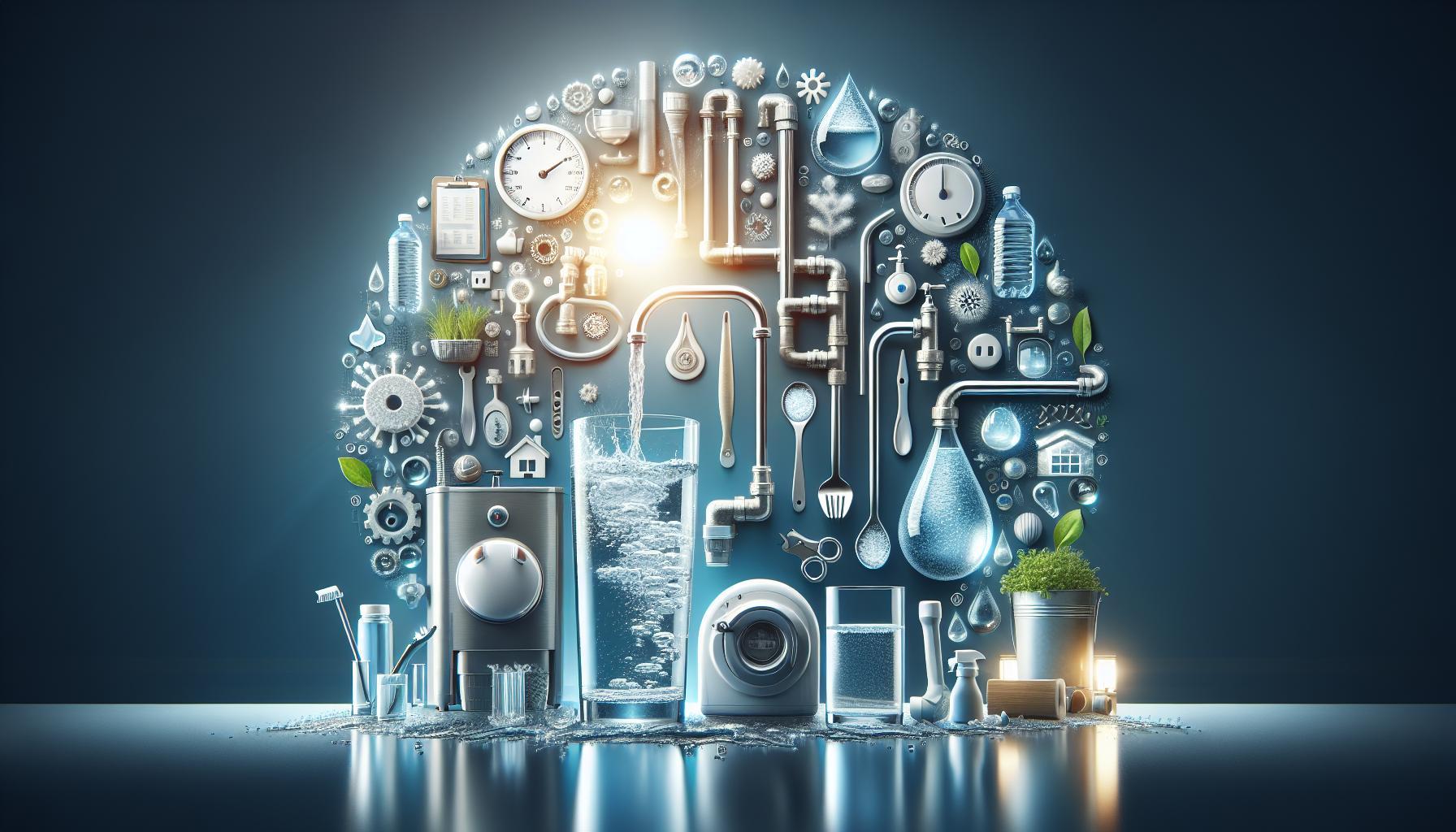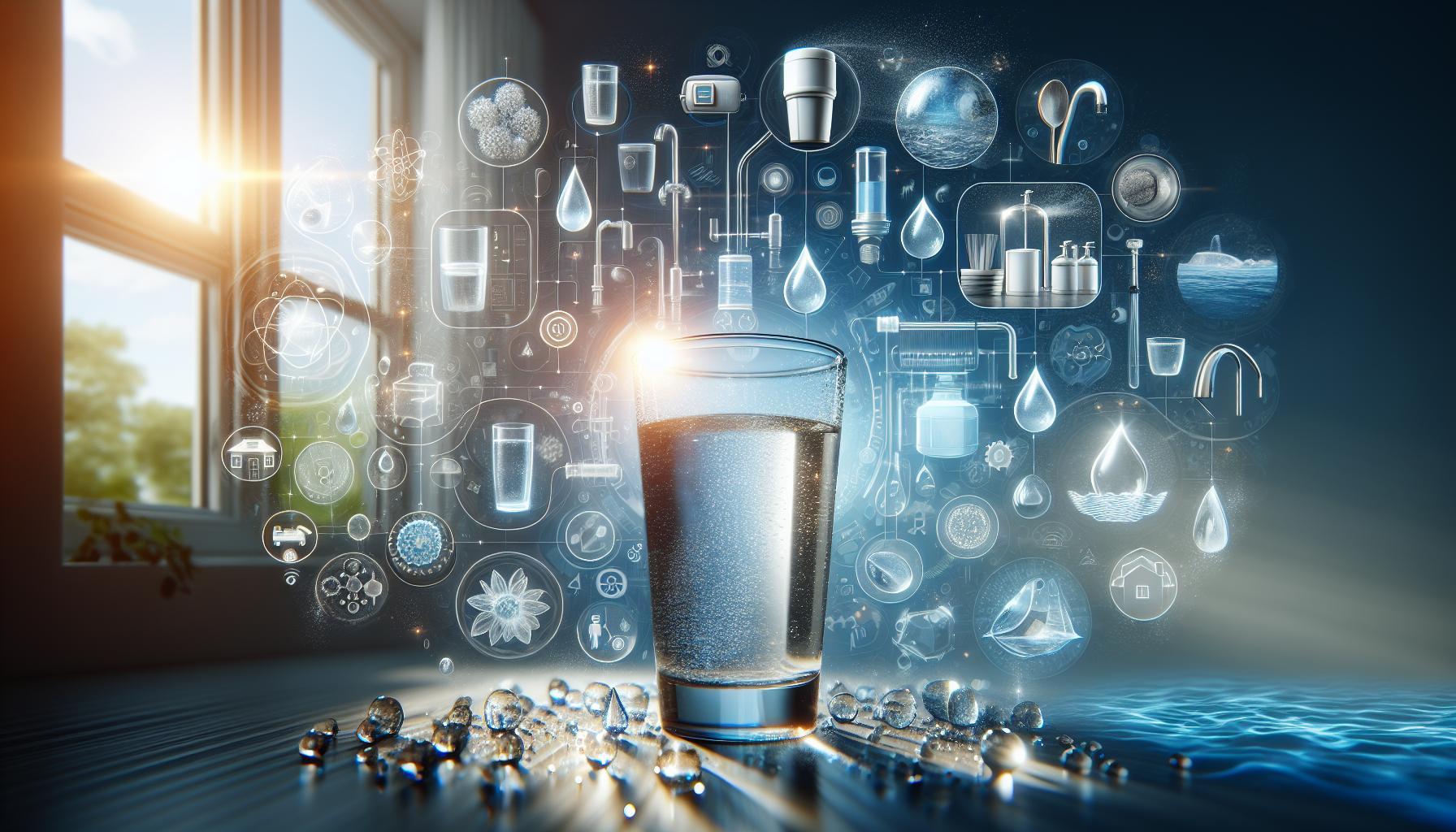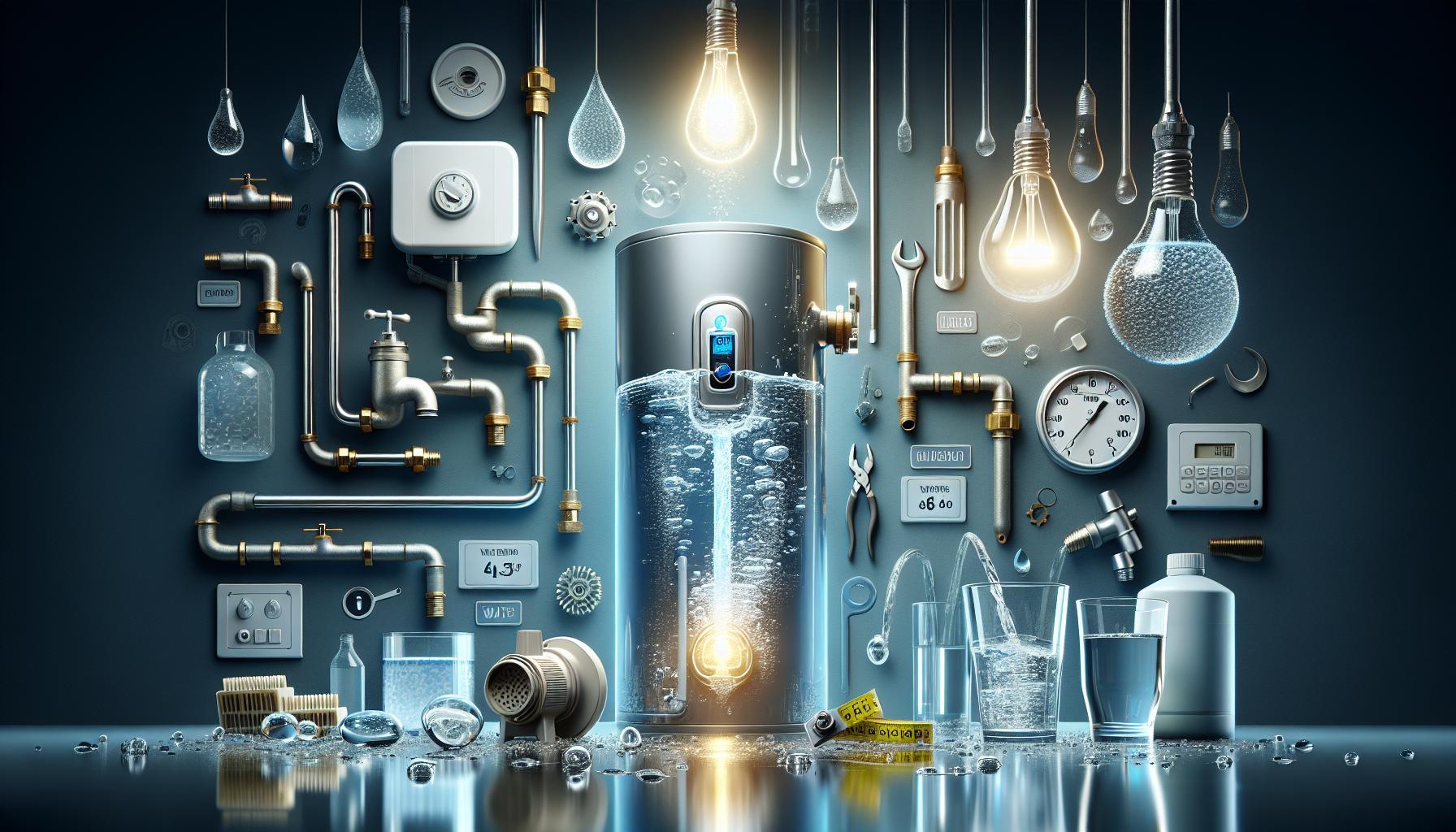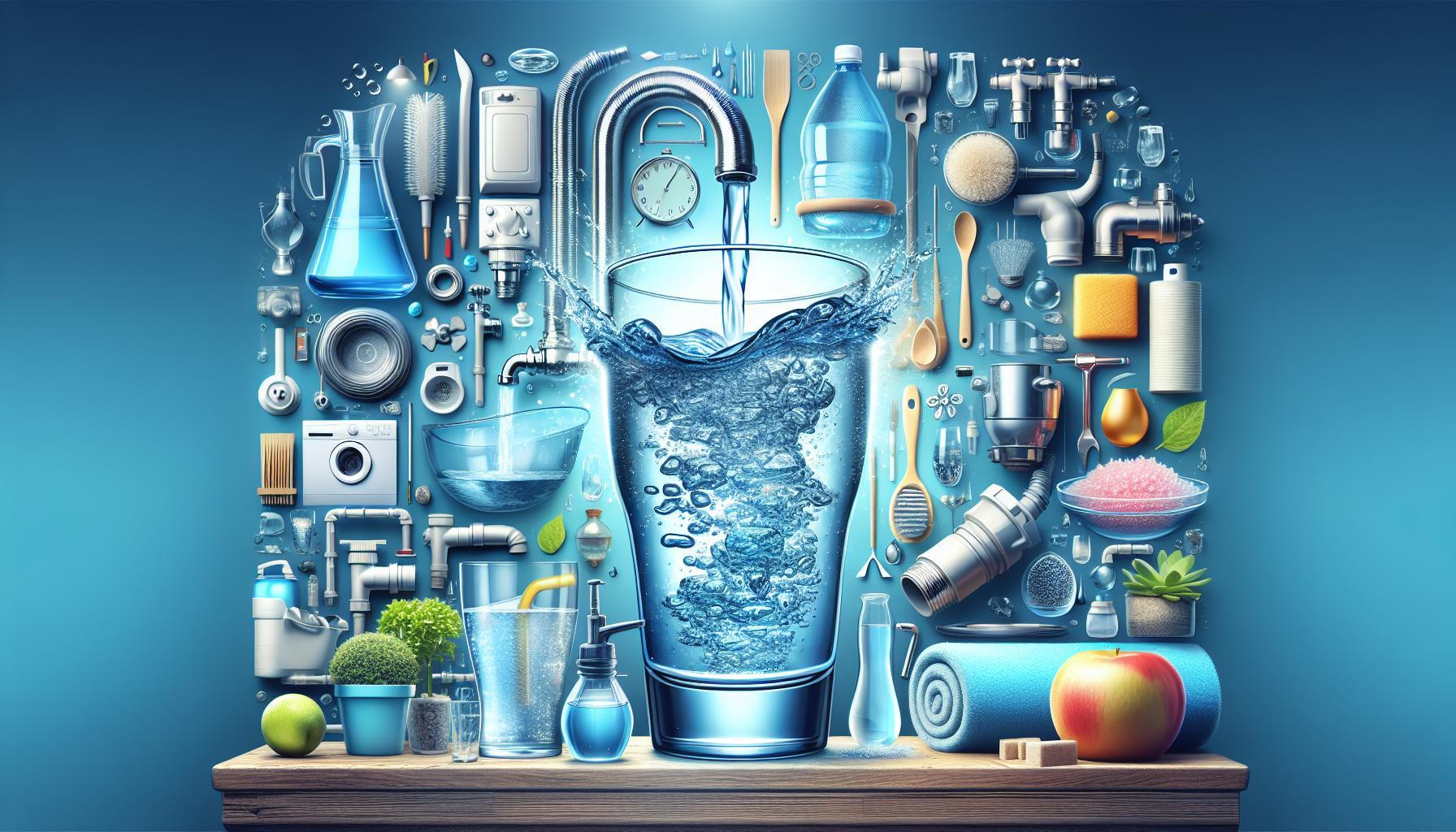When hot water runs out unexpectedly or fluctuates in temperature, it can lead to frustration and costly repairs for homeowners relying on tankless systems. Understanding the most prevalent issues—such as mineral buildup and sizing problems—can help prevent these headaches and ensure your water heater operates efficiently. By addressing these common concerns, you can save time and money while enjoying uninterrupted hot water.
Understanding Tankless Water Heaters: How They Work
Imagine enjoying an endless supply of hot water while simultaneously saving energy and space in your home. This is the promise of tankless water heaters, which have gained popularity due to their efficiency and convenience. Unlike traditional heaters that store hot water in a tank, tankless models heat water on demand, providing hot water instantly and only as needed. This means no more running out of hot water during long showers or waiting for a tank to refill.
How They Operate
Tankless water heaters utilize powerful heating elements, either gas burners or electric coils, to heat water directly as it flows through the unit. When a hot water tap is turned on, cold water travels through a pipe into the unit, where it is heated and delivered directly to the faucet. This instantaneous heating process not only ensures a steady supply of hot water but also significantly reduces energy consumption as there is no standby heat loss associated with keeping a large volume of water hot in a tank.
Common Issues to Consider
While tankless water heaters offer numerous benefits, understanding their operation also involves being aware of potential challenges. One of the most common issues—often highlighted in discussions around cost-saving and maintenance—is mineral buildup within the unit due to hard water. This buildup can cause the heater to operate less efficiently and may even lead to a system failure if not addressed promptly. Regular maintenance, including descaling the unit, is essential to prolong its lifespan and maintain optimal performance.
- Regular Maintenance: Schedule annual inspections and cleanings to ensure efficiency and prevent issues related to mineral buildup.
- Sizing: Choosing the right size unit for your home’s hot water needs is crucial. An undersized unit may struggle to keep up with demand, leading to cold water surprises.
Practical Tips for Homeowners
To further enhance your experience with tankless water heaters, consider installing a water softener system if you live in an area with hard water. This can help reduce mineral deposits and protect your unit from premature wear. Additionally, familiarize yourself with your unit’s troubleshooting guide to resolve minor issues before they escalate into costly repairs. By understanding the fundamentals of how tankless water heaters work and the most common pitfalls to avoid, homeowners can enjoy the many advantages these systems offer without the expensive mistakes that come from neglect.
| Issue | Solution |
|---|---|
| Mineral Buildup | Regular descaling and flushing |
| Inconsistent Water Temperature | Ensure proper sizing and installation |
| Insufficient Hot Water | Adjust or upgrade to a larger unit |
Embracing the technology of tankless water heaters can lead to significant benefits for your household, including energy savings and reliable hot water availability. However, staying informed about their operation and the most common issues, such as those outlined in ‘What Is the Most Common Issue with Tankless Water Heaters? Avoid Costly Mistakes,’ can help maximize their benefits and ensure a smooth and efficient experience.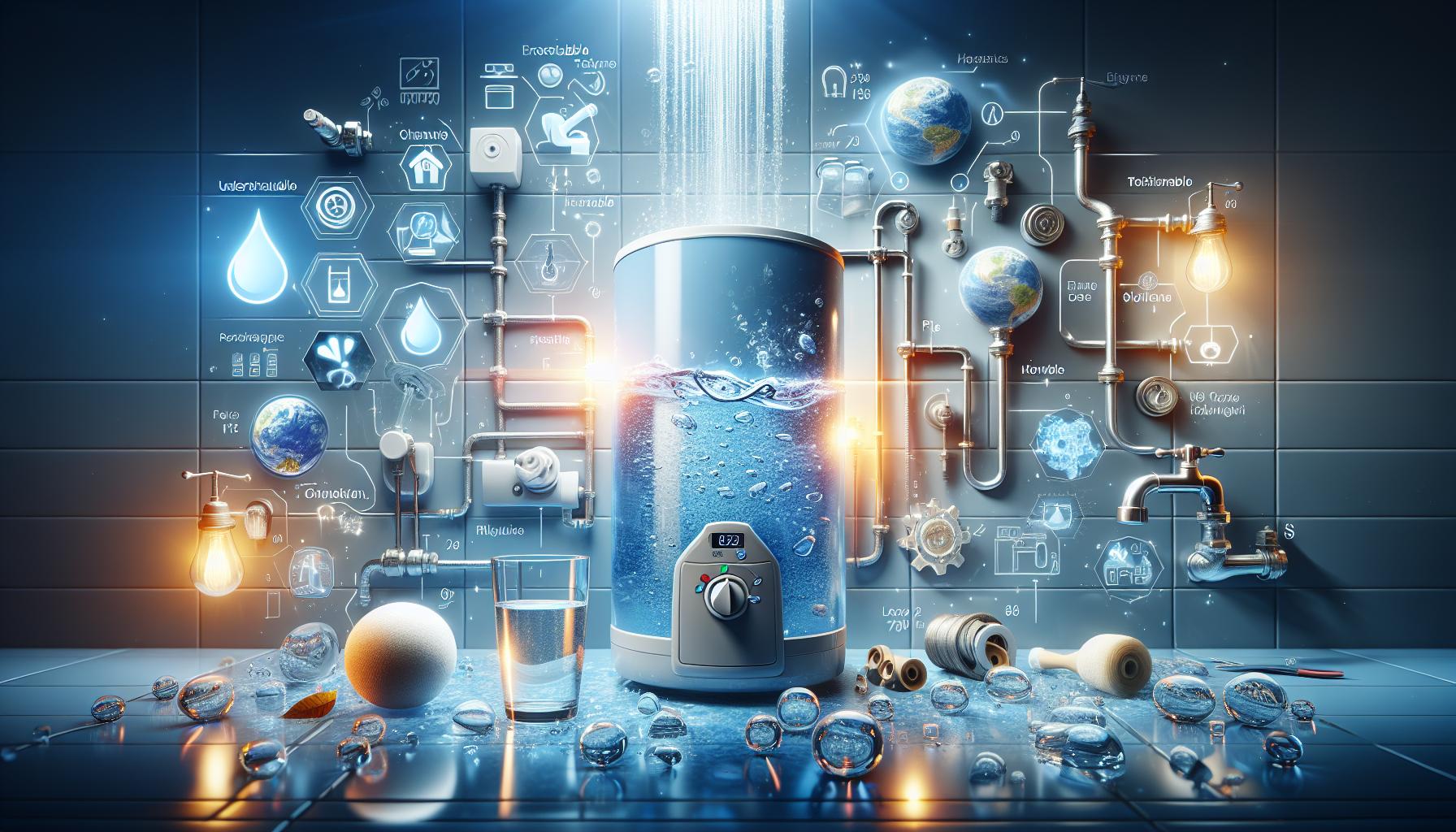
Common Misconceptions About Tankless Water Heaters
Understanding the truths behind tankless water heaters is critical for homeowners considering this technology. These systems are gaining popularity due to their promised efficiency and ability to save space, but myths can cloud decision-making. Dispelling these common misconceptions can help consumers make informed choices and avoid potential pitfalls.
Misconceptions About Tankless Water Heaters
One of the prevalent myths is that tankless water heaters are significantly more expensive to maintain than traditional tank models. In reality, while initial costs may be higher, tankless systems often incur lower maintenance expenses over the long run. Regular descaling and maintenance can extend their lifespan, making the overall investment more economical.
Another misconception is the belief that tankless water heaters can’t handle cold inlet temperatures. While it is true that extreme cold can impact performance, many modern units are designed to function effectively even in cooler climates. Homeowners should consult manufacturer guidelines to select the appropriate model for their specific location.
Additionally, many people think that the installation process for tankless water heaters is overly complex and requires extensive retrofitting. This perspective can prevent potential buyers from considering tankless options. However, with proper planning and a qualified professional for installation, transitioning from a traditional tank water heater to a tankless system can be straightforward.
Lastly, some believe that tankless water heaters provide an endless supply of hot water without any limits, which is not entirely accurate. These systems can only heat a specific volume at a time; if demand exceeds capacity, it can lead to fluctuations in temperature. Understanding the actual capacity of the chosen unit is crucial for optimizing hot water usage in the home.
By clarifying these misconceptions, homeowners can effectively navigate the choice between tankless and traditional water heating solutions, thereby minimizing costly mistakes and maximizing their investment.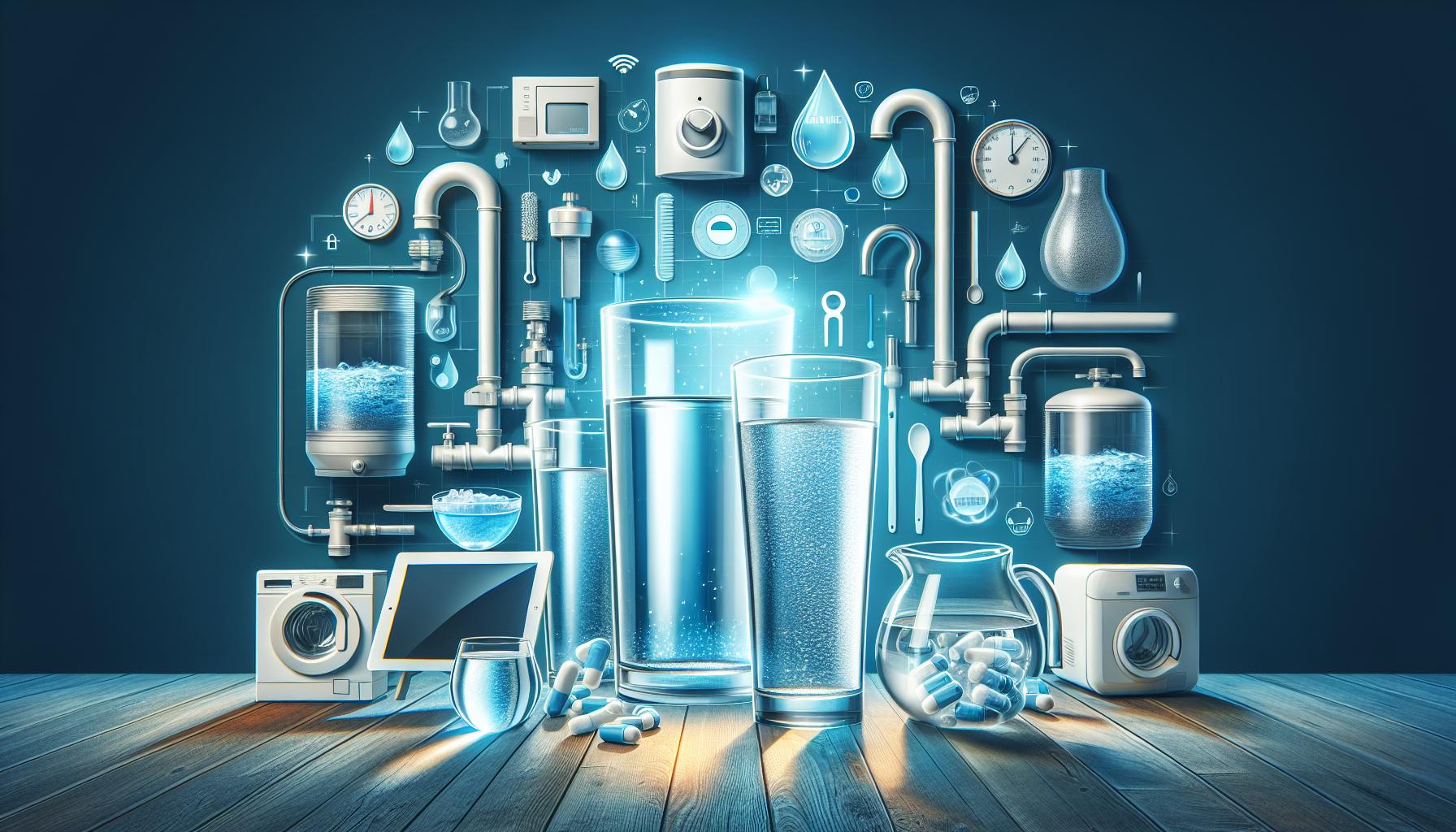
Identifying the Most Frequent Issues with Tankless Systems
Modern tankless water heaters have revolutionized how we access hot water, offering convenience and efficiency. However, with innovation comes complexity, and many homeowners find themselves grappling with common issues that can disrupt their daily routines. Identifying these frequent problems early can save you from costly repairs and ensure your system runs smoothly.
Common Issues with Tankless Water Heaters
One of the most prevalent problems encountered with tankless systems is the lack of hot water. This can be triggered by various factors, such as inadequate gas supply or power issues. Regularly checking connections and ensuring your heater is receiving sufficient energy can mitigate these problems. Another frequent issue is fluctuating water temperatures, which can stem from improper sizing of the unit or foreign objects obstructing the system. It’s essential to have the right unit for your home’s demands and to maintain cleanliness within the unit to prevent interruptions in service.
Low water pressure is also a common complaint among tankless water heater users. This often results from mineral buildup, which can occur inside the unit due to hard water. Regular descaling and flushing of the system can help maintain optimal pressure and performance. Here’s a brief overview of frequent issues:
| Issue | Possible Cause | Recommended Solution |
|---|---|---|
| No hot water | Insufficient gas or power supply | Check connections and energy source |
| Fluctuating temperatures | Incorrect sizing or obstructions | Ensure proper unit sizing and clean |
| Low water pressure | Mineral buildup | Regular descaling and maintenance |
Another critical aspect to consider is the potential for ignition failures. This can be due to a blocked venting system or issues with the electrical system, which may require professional servicing. To enhance the longevity of your tankless water heater and avoid potential mistakes, it’s crucial to schedule regular maintenance checks. By being proactive, you can ensure that your beloved unit continues to provide hot water on demand without unnecessary interruptions.
Expert Tips for Preventing Costly Tankless Water Heater Problems
Regular maintenance is the cornerstone of a dependable tankless water heater. Properly caring for your unit not only maximizes efficiency but also significantly reduces the likelihood of costly repairs. It’s worth noting that neglecting regular upkeep can lead to issues such as insufficient hot water, odd smells, and noises, all of which stem from common failures like mineral buildup and combustion problems. To keep your system running smoothly, consider these expert tips to circumvent these typical tankless water heater malfunctions.
Schedule Regular Maintenance
One of the most effective strategies for preventing issues is scheduling routine maintenance. Flushing the system at least once a year can help remove mineral deposits that accumulate over time, especially in areas with hard water. A well-maintained unit operates more efficiently, providing consistent hot water when needed. Homeowners should also check and clean the air filter regularly to ensure unobstructed airflow essential for combustion and performance.
Monitor Water Quality
The quality of your water can significantly impact your tankless water heater’s health. Consider conducting periodic water quality tests to identify hardness levels and contaminants. Invest in a water softener if your water has high mineral content, as this can help mitigate sediment buildup. Additionally, using a whole-house filter can also enhance water quality and prolong the life of your unit.
Keep an Eye on Temperature Settings
Incorrect temperature settings can lead to both safety concerns and efficiency issues. The recommended temperature for a tankless water heater is typically between 120°F and 140°F. Incorrectly set temperatures can cause frequent cycling, leading to wear and tear on internal components. Maintaining the right temperature not only enhances performance but also ensures energy efficiency, preventing unnecessary spikes in utility bills.
| Preventive Measures | Benefits |
|---|---|
| Annual System Flushing | Reduces mineral buildup and maintains efficiency. |
| Regular Air Filter Cleaning | Ensures proper airflow and combustion. |
| Water Quality Testing | Identifies mineral content and potential damage risks. |
| Correct Temperature Settings | Improves efficiency and prevents damage. |
By incorporating these practical strategies into your maintenance routine, you can mitigate the risk of common issues such as those detailed in “What Is the Most Common Issue with Tankless Water Heaters? Avoid Costly Mistakes.” Taking proactive measures not only preserves the functionality of your system but also protects your investment for years to come.
The Importance of Proper Installation and Maintenance
The longevity and efficiency of tankless water heaters greatly depend on their proper installation and routine maintenance. Many homeowners underestimate the significance of these factors, leading to common issues that can be both costly and inconvenient. Ensuring that your unit is installed by a qualified professional and maintained regularly can prevent potential problems and help you avoid the pitfalls often discussed in articles addressing frequently encountered issues with tankless water heaters.
Installation Matters
When it comes to installation, the correct setup of a tankless water heater is crucial for optimal performance. Each unit has specific requirements regarding ventilation, gas supply, and plumbing connections. If these are not correctly configured, users may experience inadequate heating, leaks, or even system failures. Additionally, improper installation might void your warranty, leaving you unprotected should a problem arise later. To ensure proper installation:
- Always hire certified technicians who specialize in tankless water heaters.
- Follow the manufacturer’s installation guidelines strictly.
- Assess the local building codes to ensure compliance.
By attending to these details, you can significantly minimize the risk of facing common tankless water heater issues.
Maintenance Essentials
Once installed, regular maintenance becomes essential to keep your tankless water heater functioning optimally. Neglecting routine care can lead to scaling, which is one of the prevalent problems discussed regarding tankless heaters. Mineral deposits from hard water can build up inside the unit, restricting water flow and leading to inefficiencies or even breakdowns. Implementing a maintenance schedule can help prevent this. Consider these actionable steps:
- Flush the system annually to remove mineral deposits.
- Inspect filters and replace them as necessary to maintain water quality.
- Check for gas leaks or any irregular noises that could indicate issues.
| Maintenance Task | Frequency |
|---|---|
| Flush system | Annually |
| Inspect filters | Every 6 months |
| Check for gas leaks | Monthly |
By prioritizing installation and maintenance, you not only enhance the performance of your tankless water heater but also extend its lifespan, ensuring reliable hot water whenever you need it. Understanding the most common issues associated with tankless water heaters allows you to stay ahead of potential pitfalls, making informed choices that lead to long-term satisfaction and savings.
Troubleshooting: What to Do When Your Tankless Heater Struggles
When faced with issues related to your tankless water heater, it’s essential to troubleshoot effectively to avoid more costly repairs down the line. These units, while efficient and space-saving, can present a variety of challenges that can disrupt your hot water supply. Understanding the common culprits behind these problems can help you diagnose and resolve them swiftly.
Common Issues and Their Solutions
Here are several frequent issues you may encounter with your tankless heater, along with actionable fixes:
- No Hot Water: This could be due to incorrect temperature settings. First, check the thermostat on your unit and ensure it’s set appropriately. If the settings are correct, inspect the heating element for any faults.
- Fluctuating Temperatures: If you notice inconsistent water temperatures, this may be indicative of scale buildup within the unit. Flushing the heater with a descaling solution can help maintain consistent performance.
- Cold Water Sandwich: This common phenomenon occurs when hot water runs out before a fresh supply is available. To combat this, try staggering your hot water usage or adjusting the flow rate to allow for a more consistent temperature.
- Blocked Water Filter: A clogged filter can restrict water flow. Regularly clean the water filter by turning off the supply, removing the filter, and rinsing it under running water.
Steps for Descaling Your Tankless Water Heater
To ensure the longevity and efficiency of your unit, periodic descaling is critical, particularly in areas with hard water. Here’s a simplified method for descaling:
| Step | Description |
|---|---|
| 1 | Turn off the heater and close the water supply valves. |
| 2 | Attach a pump to the service ports, using a vinegar solution. |
| 3 | Run the pump for 30 minutes to an hour, allowing the solution to circulate. |
| 4 | Rinse the system with fresh water after descaling. |
By being proactive in your maintenance and repairs, you can mitigate many issues that arise with tankless water heaters, potentially saving you from expensive replacements and ensuring you have access to hot water when you need it most. Remember to consult with professionals for any serious mechanical problems or when in doubt about your troubleshooting efforts.
When to Call a Professional: Signs You Need Expert Help
Experiencing issues with your tankless water heater can be frustrating and often signals that it’s time to seek professional assistance. These systems, while efficient, can encounter a range of problems that require expert knowledge for proper diagnosis and repair. Identifying when to call in a professional can save you from costly mistakes, ensuring that your water heater functions optimally and extends its lifespan.
Common Indicators of Trouble
If you notice any of the following signs, it may be time to contact a qualified technician for help:
- No hot water: If your tankless system is failing to deliver hot water, it could point to issues such as a malfunctioning heating element or obstructed water flow.
- Fluctuating water temperature: Inconsistent temperatures can indicate a problem with the thermostat or a buildup of mineral deposits in the heat exchanger.
- Strange noises: Unusual sounds, like rumbling or banging, often suggest that sediment has accumulated within the unit, which typically requires professional flushing.
- Low water pressure: A significant drop in water pressure can be attributed to blockages in the pipes or valves, necessitating expert intervention.
Risk Factors to Consider
Attempting to troubleshoot or fix these issues without sufficient knowledge can lead to further damage, making it crucial to recognize your limits. If you’ve performed basic checks (like resetting the unit or checking the gas supply) and the problem persists, it’s advisable to consult a professional. Consider also the complexity of your installation; if your heater is connected to multiple outlets or has a complicated piping system, expert help is essential.
When Maintenance Becomes Necessary
Regular maintenance is key to avoiding common issues with tankless water heaters, yet some signs indicate that routine maintenance has become urgent. If you haven’t had your unit serviced in over a year or notice a significant increase in energy bills, it may not be performing at its best. Engaging a professional for annual inspections can help catch issues early, preventing costly repairs down the line.
In conclusion, recognizing the signs that necessitate professional help is vital in maintaining the efficiency and longevity of your tankless water heater. By monitoring performance and taking prompt action when problems arise, you can avoid the pitfalls associated with neglecting these sophisticated systems. Regular consultations with a qualified technician not only help resolve issues but can also enhance the overall functioning of your water heater.
Comparing Tankless Water Heaters to Traditional Options: What You Need to Know
When it comes to water heating solutions, homeowners often find themselves torn between traditional tank-style water heaters and modern tankless models. Both systems have unique attributes that cater to different needs and lifestyles, but understanding their core differences can help you make an informed decision. Tankless water heaters, noted for their energy efficiency and compact size, heat water on demand, eliminating the need for a storage tank. In contrast, traditional heaters store heated water, making them reliable for households that require a steady supply.
Lifespan and Maintenance
The lifespan of a water heater is a crucial consideration when comparing these two options. Traditional tank models typically last about 10-15 years, largely due to issues like tank corrosion and sediment buildup. In contrast, tankless units boast an impressive lifespan of 20 years or more, owing to their design which avoids constant exposure to water that leads to wear and tear [2[2]. However, while tankless systems require less frequent replacement, regular maintenance is essential. Deposits from hard water can significantly reduce efficiency and lifespan if not addressed {{regularly}}.
Energy Efficiency and Cost
Energy efficiency is another pivotal factor. Tankless water heaters are generally higher in upfront costs but offer substantial savings on energy bills over time. They only heat water as needed, which can potentially reduce energy consumption by up to 30% compared to traditional heaters [2[2]. Conversely, traditional systems, while cheaper to install (usually cheaper by several hundred dollars), continuously consume energy by maintaining a reservoir of hot water.
| Feature | Tankless Water Heaters | Traditional Water Heaters |
|---|---|---|
| Lifespan | 20+ years | 10-15 years |
| Energy Efficiency | Up to 30% savings | Standard energy consumption |
| Initial Cost | Higher | Lower |
| Maintenance Needs | Regular descaling | Occasional tank flushes |
Conclusion
Deciding between tankless and traditional water heaters involves weighing the importance of longevity, energy savings, and initial investment. For homeowners keen on reducing their carbon footprint and enjoying hot water on demand, tankless units represent a modern solution that aligns with sustainable living. However, if you’re looking for a straightforward and low-maintenance option with a lower upfront cost, a traditional water heater may suit your needs better. Understanding these nuances is vital to avoid common pitfalls and ensure a satisfying purchase that meets your home’s demands.
FAQ
What Is the Most Common Issue with Tankless Water Heaters?
The most common issue with tankless water heaters is inadequate maintenance which can lead to mineral buildup. Regular descaling is essential to keep the unit running efficiently.
Tankless water heaters are designed to last long, but without proper maintenance, problems like mineral buildup can hinder performance. This is particularly true in areas with hard water. Descaling your unit at least once a year can prevent such issues and extend its lifespan.
How can I prevent issues with my tankless water heater?
Preventive maintenance is key to avoiding issues with tankless water heaters. Simple tasks like regular descaling and checking the filters can save you from costly repairs down the road.
Performing routine checks can catch problems early. Always refer to your manufacturer’s guidelines on maintenance schedules. If you live in a hard water area, consider installing a water softener to reduce scaling inside the unit.
Why does my tankless water heater keep shutting off?
Your tankless water heater may shut off due to overheating or insufficient water supply. This is often a safety feature designed to prevent damage.
Check for obstructions in the water supply or air intake. Also, make sure the flow rate matches your unit’s capacity. Inadequate power supply or venting issues can also cause this problem, so ensure all connections are secure.
Can I install a tankless water heater myself?
While it’s possible to install a tankless water heater yourself, it’s generally recommended to hire a professional. Installation involves electrical and plumbing work that must meet local codes.
A professional can ensure proper installation and function, minimizing risks of leaks and inefficiencies. Moreover, improper installation might void the warranty of your unit, making professional help worth the investment.
What signs indicate I need to replace my tankless water heater?
Signs that indicate a need for replacement include age, frequent repairs, and inefficiency. If your unit is over 15 years old, consider getting a new one.
Regular inefficiency or rising energy bills hint at deeper problems. If it constantly needs repairs or fails to meet your hot water needs, it may be time for an upgrade. Investing in a new, energy-efficient model can eventually save you money.
How do I choose the right size tankless water heater?
Choosing the right size tankless water heater involves calculating your peak usage needs. Consider the number of fixtures that may run simultaneously to determine the required flow rate.
To choose the appropriate model, consult a sizing calculator or guide. Overestimating can lead to higher upfront costs, while underestimating may result in inadequate hot water supply during peak times.
What maintenance do tankless water heaters require?
Tankless water heaters require routine maintenance like descaling and filter cleaning. Regular checks help maintain efficiency and extend your unit’s lifespan.
It’s crucial to follow the manufacturer’s maintenance recommendations. Neglecting this can lead to reduced performance and costly repairs, as buildup can affect both heating capacity and energy efficiency.
Closing Remarks
In summary, understanding the most common issues with tankless water heaters is essential for maintaining their efficiency and longevity. Problems such as no hot water, fluctuating temperatures, and mineral buildup are prevalent but manageable with the right knowledge. By staying informed and proactive, you can avoid costly mistakes and ensure your system operates smoothly. We encourage you to explore further resources and engage with the community to share experiences and solutions. Confidently tackle your water heating challenges and enjoy the comfort of reliable hot water in your home!

